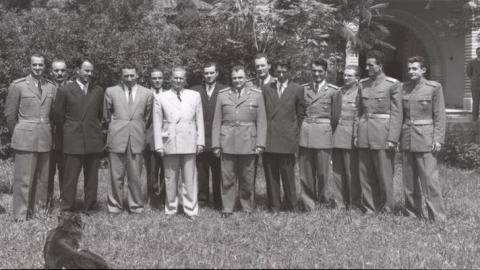Keeping Secrets: Montenegro’s Yugoslav-Era Intelligence Files Stay Closed

Vujicic cautioned however that the process requires a stable government, which politically-turbulent Montenegro does not have at the moment.
The current coalition government came to power in December 2020, ending three decades of uninterrupted rule by the Democratic Party of Socialists, DPS. On taking office, it announced that it will deal with former officials of or collaborators with the Yugoslav-era intelligence service known as UDBA.
In December 2020, the coalition government promised a law on lustration to weed out officials guilty of past human rights violations, but on January 28 this year, it announced that the law could only be implemented in 2023.
Security Service ignores legal obligations
The head of Montenegro's National Security Agency, Dejan Vuksic (left), at a parliament session. Photo: Parliament of Montenegro.
Since the fall of the Berlin Wall three decades ago, a host of eastern European states have opened the archives of their secret services and passed laws designed to bar from public life those associated with rights violations under their former Communist regimes, particularly members of the security apparatus and its informants.
There have been attempts to do the same in the former Yugoslavia, but these have yielded more controversy than a real success.
In 2016, Montenegrin opposition parties requested the opening up of secret files from the Communist era and from the 1990s war years. The DPS government was headed by veteran Montenegrin leader Milo Djukanovic then appointed retired intelligence officer Gojko Pejovic as general inspector at the National Security Agency, ANB.
Pejovic was appointed to assess the ANB's work by scrutinising secret files and operations. However,...
- Log in to post comments










